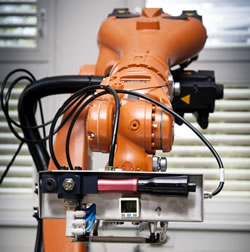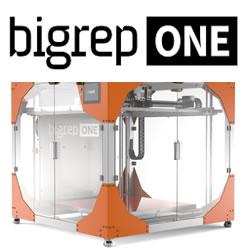Guidelines for implementation of Industry 4.0
 The internet of things, artificial intelligence, networked production, smart homes - these are the magic words of digital transformation. While the big technology companies are already equipping their products and production with artificial intelligence - all parts of the chain of values added are to supply data in the future -, German medium-sized companies are not succumbing to its spell. Not yet! Scientists of Karlsruhe Institute of Technology (KIT) help companies implement Industry 4.0.
The internet of things, artificial intelligence, networked production, smart homes - these are the magic words of digital transformation. While the big technology companies are already equipping their products and production with artificial intelligence - all parts of the chain of values added are to supply data in the future -, German medium-sized companies are not succumbing to its spell. Not yet! Scientists of Karlsruhe Institute of Technology (KIT) help companies implement Industry 4.0.
Most of the small and medium-sized companies consider the increasing use of digital technology an opportunity, but where to start? Now, guidelines co-developed by researchers of KIT show them the way into Industry 4.0.
According to a survey of Germany's digital association Bitcom, 90% of the small and medium-sized companies consider digital transformation an opportunity. 80% of the respondents even think that companies would die, if they refuse digitization. "But the obstacles appear to be huge," Nicole Stricker of the Institute of Production Science (wbk) says. Which changes of production and product appear to be reasonable and feasible from technical and economic points of view? Answers are given by the guidelines for Industry 4.0 developed in cooperation with the German Engineering Association (VDMA) and TU Darmstadt.
First, company-internal and external experts jointly identified promising applications at the respective companies, Stricker says. The guidelines do not present a list of potential solutions, but contain a tool kit to divide the vast topic of Industry 4.0 into easier-to-handle packages, Jörg Bauer of wbk adds. The partial areas of production and products are analyzed in a stepwise manner. The former covers data processing, company-wide networking of production, or human-machine interaction. The latter includes integration of sensors for data acquisition, IT services for data processing, and the resulting new business models. Implementation ideas are then developed jointly at workshops.
"We want to help companies access this topic and provide concrete support," Nicole Stricker says. In the beginning, data existing at companies might be used in new ways. As a result, enterprises might be enabled to offer entirely new services with existing machines. "Or we find places, where it could make sense to build a control loop with learning systems." For example, there is enormous potential in coupling production and quality data: "Systems might adjust their processes by themselves in order to keep product quality high," Stricker points out.
Although new technologies develop rapidly, there is no quick way into the new production world, Stricker says: "You cannot buy Industry 4.0, you have to work for it." And this needs time, Jörg Bauer adds. He therefore warns of hasty retrofitting. "When something goes wrong, production stands still. We at wbk offer a test environment where things can be tested, accompanied by the required expertise."
Companies wishing to use the guidelines can contact wbk. "We are always happy when companies come to us, because we have many possibilities of integrating them into research processes," Bauer says.
###
For further information, please contact: Dr. Felix Mescoli, Press Officer, Phone: +49 721 608-48120, Fax: +49 721 608-43658, Email: felix.mescoli@kit.edu
Karlsruhe Institute of Technology (KIT) pools its three core tasks of research, higher education, and innovation in a mission. With about 9,300 employees and 25,000 students, KIT is one of the big institutions of research and higher education in natural sciences and engineering in Europe.
KIT - The Research University in the Helmholtz Association
Since 2010, the KIT has been certified as a family-friendly university.
Comments (2)
Featured Product

